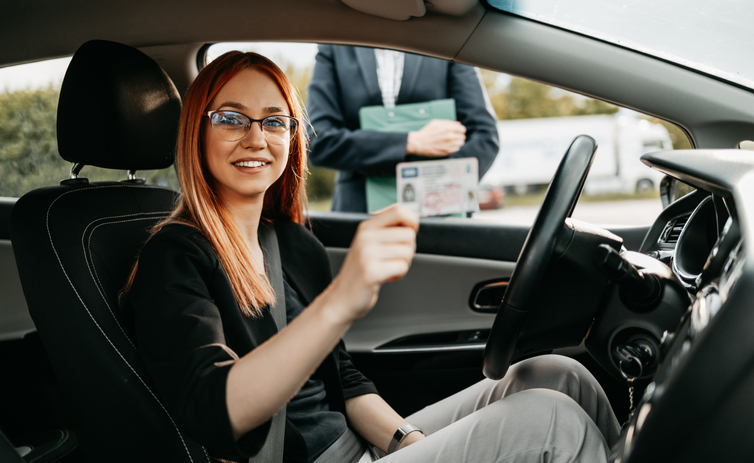
Parents, back when you were 17 years old, you would receive your full, unrestricted driver’s license simply upon passing your MVC road test. You could then take off on the open road without a care in the world. That is no longer true for your children. New Jersey currently has a graduated driver license (GDL) program that involves a three-tiered process. The State implemented this GDL with its restrictions to decrease the high number of teen automobile accidents and fatalities.
When your teen turns 16, passes a written test, and completes a behind-the-wheel driver training course, he or she receives a special learner’s permit to drive with a licensed driver at least 21 years old and under certain restrictions. Once your child turns 17, has practiced unsupervised driving for one year, and passes the MVC road test, he or she receives a probationary license for the first year of driving. While a teen with a probationary license no longer needs to have a supervising driver in the car, the other restrictions all still apply.
There is a curfew: he or she cannot drive after 11 p.m. or before 5 a.m., unless qualified for a work or religious exemption. A teenage driver cannot have more than one passenger in the vehicle, unless accompanied by a parent or guardian, or the passengers are the driver’s dependent children. Red GDL decals must be displayed on the front and rear license plates of the vehicle, and the use of electronic devices -- both handheld and hands-free -- are prohibited. Of course, seatbelts are required. While you may know all of this already, a lesser-known consequence is that GDL drivers face a $100 fine for each violation and municipal prosecutors cannot offer 0-point plea bargains to probationary drivers charged with points-carrying moving violations. This can make a speeding ticket considerably more costly for both you and your teen driver.
When your teen turns 18 and has had a probationary license for one year, he or she may obtain a regular, unrestricted driver’s license simply by completing a MVC form and paying the required fee. While it may not seem like a big deal to convert the license from probationary to basic, it is a necessary step to remove the restrictions. A teen who has not bothered to get his or her regular license remains subject to all the limitations of the probationary license, even if he or she is 18 years old and has passed the one-year mark of having a probationary license. Therefore, it is in your — and your teen’s — best interest to upgrade your teen’s probationary driver’s license as soon as he or she is eligible.
